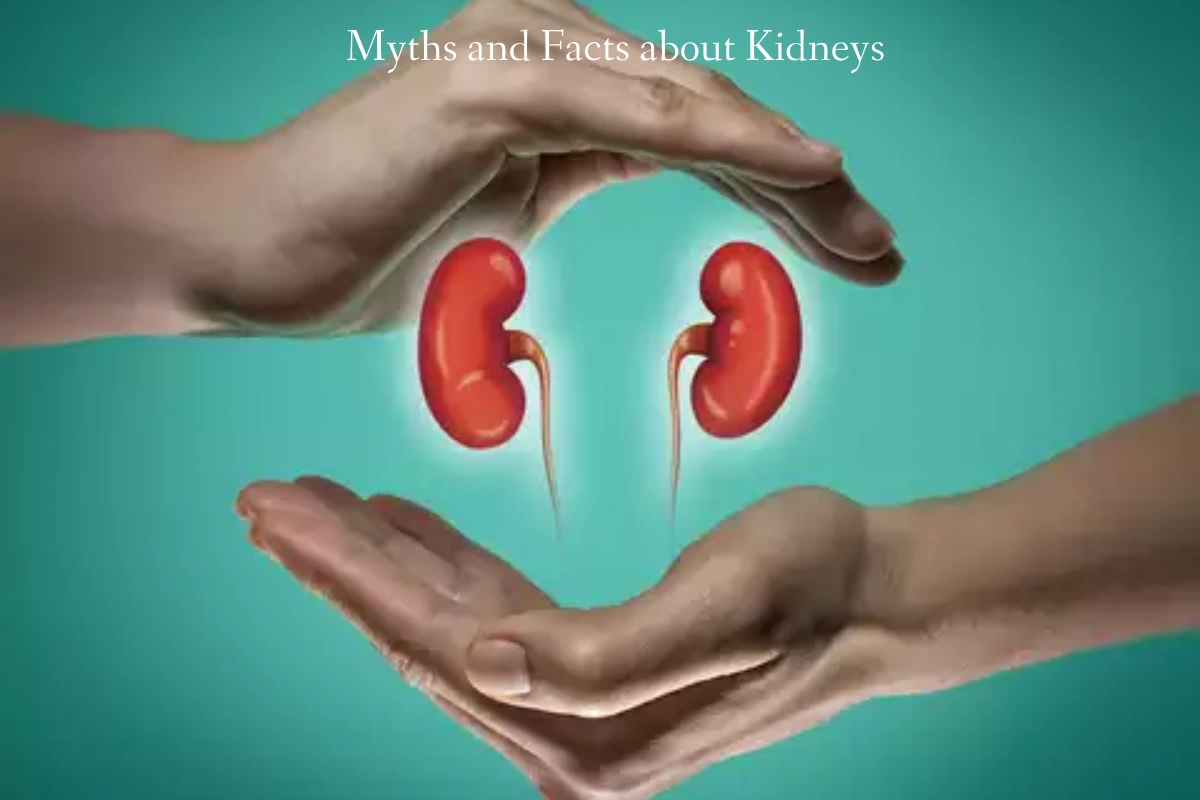The kidneys (renal) are one of the most important organs in the body because they eliminate the poisonous waste products produced by metabolism. Kidneys also manage the body’s fluid and salt balance, as well as producing hormones that aid in the production of red blood cells, bone health, and blood pressure regulation.
It can be difficult to sort through vast amounts of data to determine what is real and what is misleading in this age of practically infinite information. Many myths about kidneys circulate by word of mouth and the internet, but this article is curated to dispel some of these myths.
Some myths and facts about kidneys include;
-
Table of Contents
Myth: My kidneys must be the source of my back discomfort.
FACT: If you have an infection or a blockage in your kidneys, you may have back pain. Back discomfort is uncommon in other types of renal disease. Muscle or spine illness caused by bad sitting posture, not a renal disease, is the most prevalent cause of back discomfort. Only when the kidney’s covering (known as the capsule) is stretched does the kidney experience pain. This indicates that enlargement of the kidney due to infection or obstruction of urine flow (such as a kidney stone) causes discomfort to radiate from the flank and down into the groyne area.
-
Myth: You Need Two Kidneys to Survive
FACT: While most of us are born with two healthy kidneys, most people who only have one healthy kidney may live a normal life. People may have one kidney owing to donation or removal due to malignancy or severe infection with or without stones in some situations. Both of these roles can be performed by a single healthy kidney.
-
Myth: Kidney disease is caused by kidney stones.
FACT: Although kidney stones are unpleasant, they are not a cause of renal disease. Renal stones that cause lasting kidney damage are quite uncommon. However, if the patient does not change their lifestyle to prevent kidney stones from forming, there is a risk of renal disease developing, however, this risk is not primarily related to the recurrence of kidney stones.
-
Myth: Patients with kidney disease are unable to perform regular activities or consume normal foods.
FACT: Patients with moderately severe renal disease can perform regular activities like playing games on in but should avoid foods high in sodium and potassium. Protein deficiency is widespread in people with chronic renal disease and is one of the causes of poor outcomes. Green leafy vegetables, common spices, low salt, and low potassium should all be consumed on a regular basis.
-
Myth: Drinking 8 glasses of water a day helps the kidneys flush out toxins.
FACT: This claim is backed up by no medical proof. Drinking a lot of water won’t help you avoid renal disease. Thirst regulates the urge to drink water and should be used to decide how much fluid is consumed. Patients with renal illness are frequently recommended to drink less salt and water since fluid retention can lead to shortness of breath, swelling ankles, and weight gain.
-
Myth: Kidney disease testing is a time-consuming and expensive procedure.
FACT: Kidney disease testing is surprisingly simple. During a typical appointment with your healthcare provider, you may do it with two easy, low-cost tests. A quick pee test to see if you have any protein in your urine. Kidney disease can be detected by the presence of a little quantity of protein in your urine. GFR may be estimated using a simple blood test (glomerular filtration rate). The GFR (glomerular filtration rate) is a measurement of how well your kidneys are operating.

